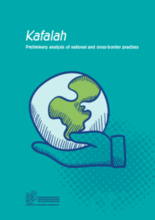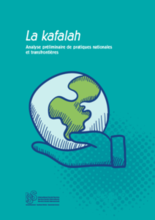Displaying 111 - 120 of 622
This handbook provides a central source of contemporary scholarship from a variety of disciplines with an international perspective and uses a multifaceted and interdisciplinary approach to ground adoption practices and activities in scientific research.
Through the analysis of over twenty country contexts, this study aims at clarifying in particular: Where does kafalah originate from? What are its characteristics in different States, and how is it recognised or enforced in another State?
The goal of this case study is to demonstrate a working model of family-based care in Zambia which can produce a replicable framework that can be modified for other regions and circumstances.
Country fact sheet for the UN Committee on the Rights of the Child; Philippines.
Through the analysis of over twenty country contexts, this study aims at clarifying in particular: Where does kafalah originate from? What are its characteristics in different States, and how is it recognised or enforced in another State?
This book outlines narrative and dramatic approaches to improve vulnerable family relationships. It provides a model which offers new ways for parents to practise communicating with their children and develop positive relationships.
This article describes the development of two parenting groups – Nurturing Attachments and Foundations for Attachment, devised to provide much needed support for foster, residential and kinship carers and adopters parenting children and young people of all ages. Both programmes are informed by the Dyadic Developmental Psychotherapy (DDP) model.
This country care review includes the care related Concluding Observations adopted by the Committee on the Rights of the Child and the Committee on the Rights of Persons with Disabilities.
This country care review includes the care-related Concluding Observations adopted by the Committee on the Rights of Persons with Disabilities and the Committee on the Rights of the Child.
This article presents a critical review of research into post-adoption support in educational settings using a rigorous systematic methodology.






